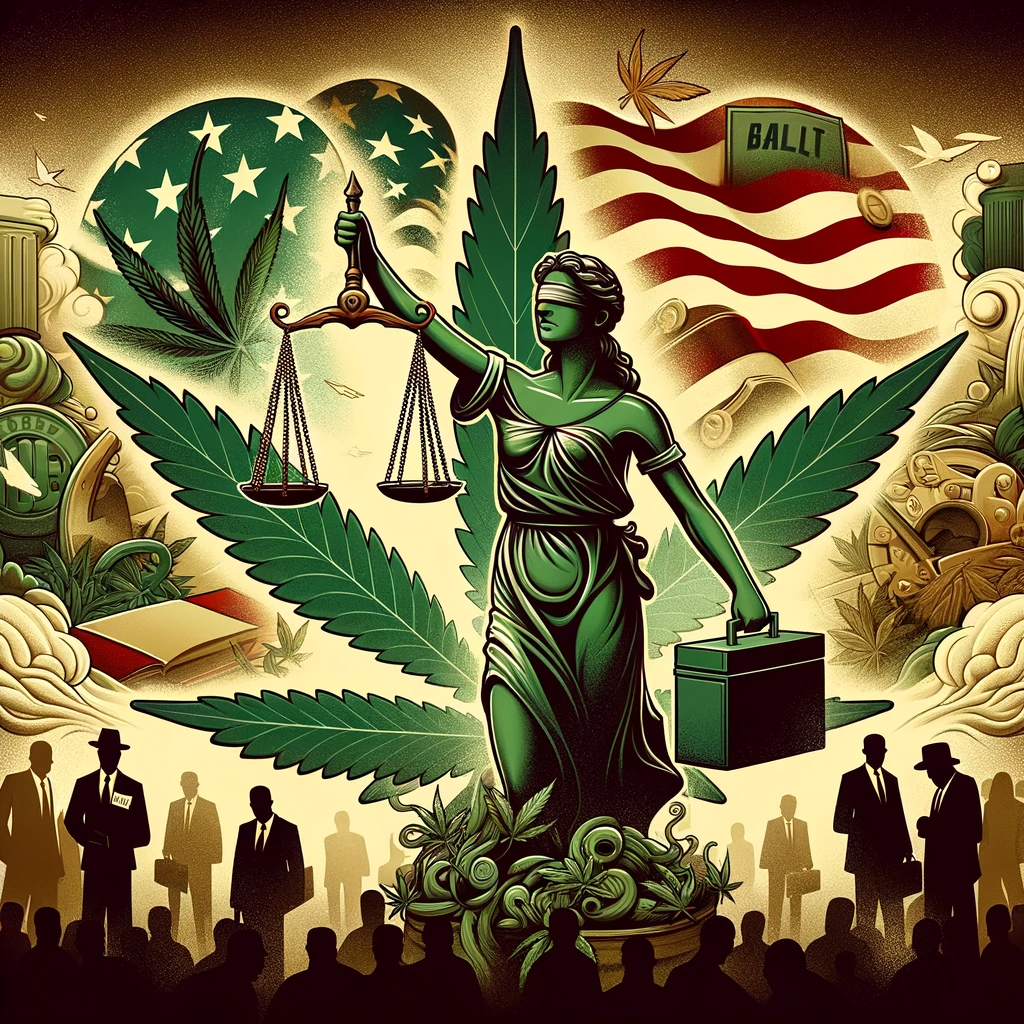Biden’s Policy Shift Sets a New Course for Cannabis Industry
Washington D.C. – President Joe Biden, a figure once notorious for his stringent anti-drug stance, has evolved into an unlikely catalyst for the most substantial overhaul of federal cannabis policy since the Controlled Substances Act was enacted in 1970. This shift could mark another surprising twist in his extensive political narrative.
The Genesis of Change
Initially, drug reform advocates held reservations about the potential for policy progression under Biden’s administration, given his history of stringent law-and-order policies. Despite this skepticism, President Biden’s October 2022 pronouncement decried the longstanding federal prohibition of cannabis as a “failed approach,” signaling a radical departure from his earlier standpoint.
The resulting directive for a swift reassessment of cannabis regulation by federal health authorities culminated in an August 29 recommendation from the U.S. Department of Health and Human Services (HSS). The agency proposed reclassifying cannabis as a Schedule 3 controlled substance, acknowledging, for the first time at a federal level, the drug’s medicinal potential.
Implications for the Cannabis Industry
This pivotal recommendation indicates a seismic shift in cannabis policy, likely leading to the Drug Enforcement Administration (DEA) adopting these changes. Such a move would alleviate significant tax burdens imposed on cannabis businesses under Section 280E of the IRS code, which currently prevents plant-touching businesses from taking normal business deductions.
Andrew Kline of Perkins Coie expressed that regardless of opinions on Biden, the cannabis industry should recognize the significance of his administration’s actions. Moreover, Howard Sklamberg, former FDA official and partner at Arnold & Porter, anticipates the final rule to be established potentially before the end of 2024, aligning with the political election cycle.
A Reformed Legacy and the Road Ahead
Should Biden pursue and secure a second presidential term, his administration might be remembered for fostering an era of federal legalization and interstate cannabis commerce, particularly in pivotal swing states with cannabis-friendly populations.
The path forward, while not without precedent, is murky given the unique circumstances surrounding cannabis as a botanical product with an existing national market, despite lack of FDA approval. The DEA is now tasked with considering the HSS recommendation, assessing its implications under domestic law and international treaties, and initiating the federal rulemaking process which includes public commentary.
Legal challenges from both sides of the legalization debate are expected, potentially stalling the rescheduling process or escalating it to the U.S. Supreme Court. Nevertheless, observers like Jonathan Caulkins of Carnegie Mellon University and Kline posit that a change in the drug’s classification appears inescapable, with significant implications for federal tax reform within the industry.
As the administration advances this policy shift, the possibility of President Biden, once the architect of the stringent 1994 crime bill, standing for reelection as a champion of cannabis legalization represents a profound political transformation that reflects the evolving landscape of American drug policy.



































